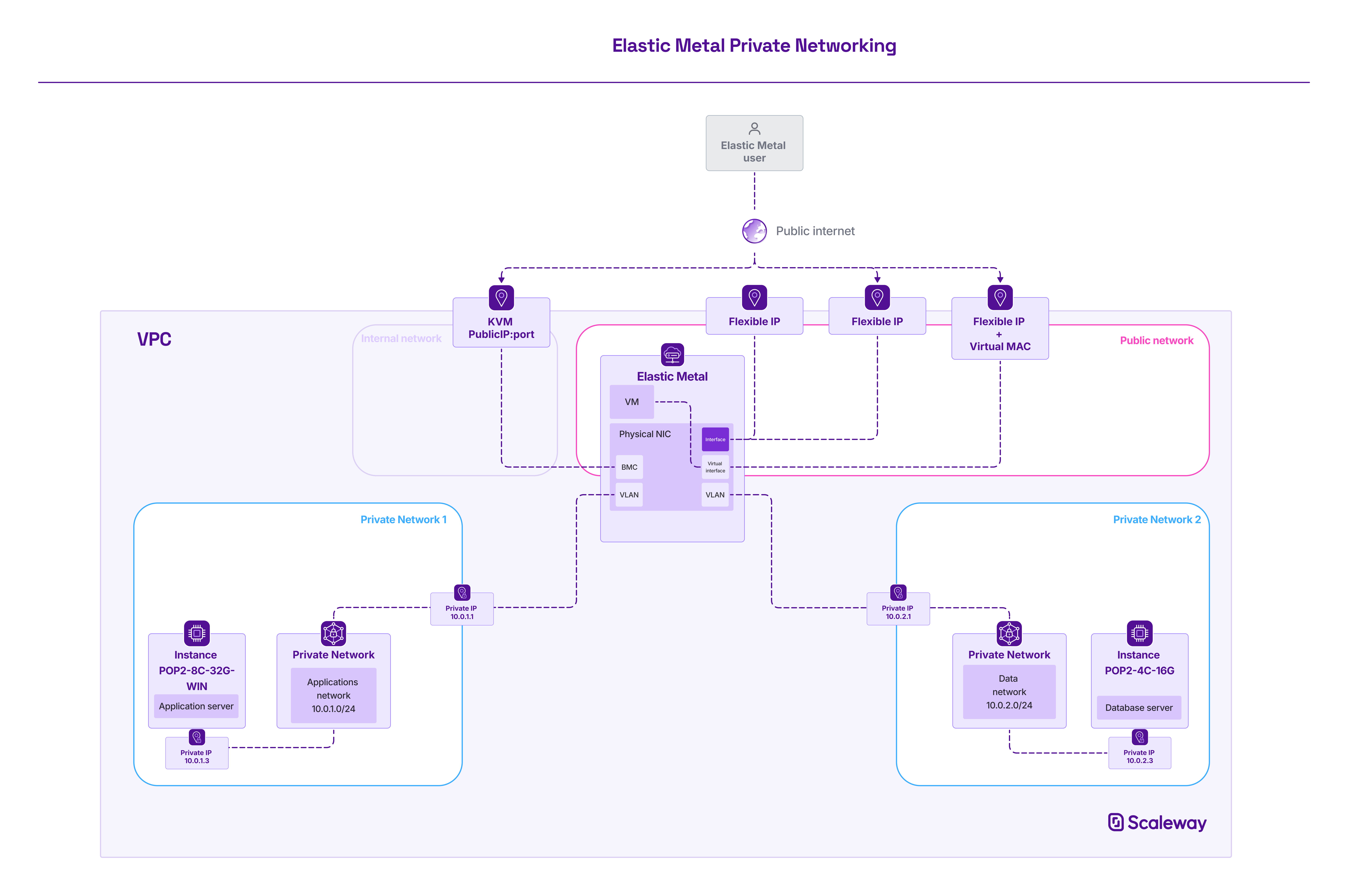Understanding Elastic Metal networking
Each Scaleway Elastic Metal server is configured with a single physical Network Interface Card (NIC), pre-configured by default. This NIC handles both public internet traffic and private network communication, sharing the total available bandwidth.

Public bandwidth and flexible IPs
Public bandwidth on Elastic Metal servers is limited by default and is typically lower than the maximum capacity of the NIC. This limit can be increased based on your server plan and configuration.
A public IPv4 address is provided by default with each Elastic Metal server and is configured automatically on the machine during OS installation via the Scaleway console. If you choose to manually install your OS, you can allow it to configure the network settings automatically using DHCP. The default IPv4 address is statically assigned to the physical machine and cannot be transferred to another Elastic Metal server.
How to adjust the available public bandwidth for an Elastic Metal server
Flexible IPs
Flexible IPs are IPs that are unrelated to the physical machine and can be assigned to your Elastic Metal resources. Flexible IPs can either be an IPv4 (/32 subnet - one IPv4 address) or an IPv6 subnet (/64 subnet).
There are two scenarios for additional flexible IPs:
- Without virtualization: Assign the additional IP directly to the host OS interface. No virtual MAC or interface is required.
- With virtualization: A virtual interface must be added to the network interface using a hypervisor (e.g. QEMU/KVM), and attached to a single virtual MAC address.
Refer to the documentation on how to configure a flexible IP on Elastic Metal for more information.
Flexible IPv6
Scaleway supports flexible IPv6 addresses on Elastic Metal servers. These operate similarly to flexible IPv4 addresses and must also be manually configured.
How to configure a flexible IPv6 on Elastic Metal
Private Networks
Private Networks are an optional feature that can be enabled per server. For each attached Private Network, a dedicated VLAN with a private IP is created on the network. Once created, the private IP and VLAN need to be configured manually on the server. This setup enables secure, isolated communication between Elastic Metal servers and other resources (e.g. Instances, Load Balancers) within the same Private Network or VPC.
How to use Private Networks with Elastic Metal servers
KVM public IP
The KVM public IP is the IP address used to access the KVM-over-IP device of the machine. This IP address is used to provide remote access to the server in case the machine can no longer be reached on the public IP, or to install a custom OS using the KVM over IP device. It is configured on the same physical NIC, but is not visible from the OS. The KVM public IP uses a special connection handled by the Baseboard Management Controller (BMC) and Scaleway's internal network.
How to activate remote access on an Elastic Metal server